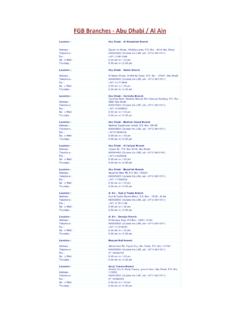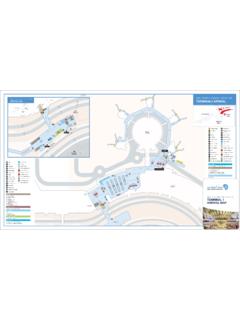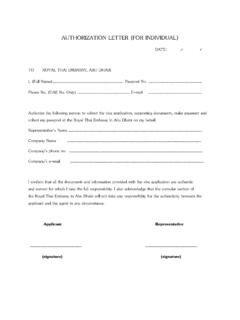Transcription of Enhancing Your Professional Nursing Practice …
1 Summer 2003 Abu dhabi NURSE28 Enhancing your ProfessionalNursing Practice ThroughCritical Reflectionby Shaun D Bowden RN Cert-TESOL Dip FlMan BN MN(AdvPrac)Head, Nursing Education Mafraq HospitalOn completion of this article, you willbe able to:lDescribe a critical reflective nurs-ing practitionerlUtilise a simple model to enhanceyour reflection skillsNurses practicing in today's rapidlychanging health care environment areincreasingly becoming aware of theneed to evaluate and improve theirpractice as well as consider the politi-cal, social and structural issues affect-ing it (Bettie et al 1996:28). Becausechange is occurring all around us, it isimportant for nurses to be able toanalyse and respond to new and dif-ferent challenges in a proactive critical thinking and reflec-tive skills will assist you to meet thechallenges of providing care in a con-text of rapid change and to become acritically reflective know you are thinking, 'exactly whatis a critically reflective practitioner?
2 'Attempt to answer the questions in ac-tivity one, before we explore these 1A critically reflective practitionerWrite your description of a critically re-flective help you begin, you might list what itis that a critically reflective practitionerdoes and how this tells you that they dothink and reflect critically. Does this helpyou 'get at' what you mean by ' critical '?Describing as opposed todefiningYou will note in activity 1 you wereasked to describe rather than define, acritically reflective practitioner. Whydo you think this was done? Is there adifference between defining or describ-ing something? To answer this ques-tion go back to the activity and thinkabout what your response would havebeen if the word define had been usedrather than when we are asked to providedefinitions we immediately think intextbook or dictionary terms and try torecall definitions that we have read orheard quoted.
3 The word definitionimplies a precise answer, which al-ready exists. A definition is usuallydescribed in quite objective terms, forexample:A critical reflective practitioner is atype of nurse or category of nurse whothinks critically about and reflects ontheir how useful is this definition in try-ing to find out what a critically reflec-tive practitioner is and, more impor-tantly, what a critically reflective prac-titioner does. This kind of definitiongives little understanding of what it isthat a critically reflective practitioneractually does and in itself shows noevidence of critical thinking or reflec-tion. It is merely an example of recall-ing knowledge or facts, or regurgitat-ing the question or of someone else'sdefinition. This is rote learning, wherewe can recall without think about the word describe,and what you wrote in your descrip-tion. A description of something usu-ally provides a much more completepicture, which is rich with detail.
4 Forexample, a description of a critical re-flective practitioner might be as fol-lows:A nurse who uses a questioning ap-proach, does not take things at facevalue, who constantly evaluates, re-views and thinks about their practicewith a focus on doing things you see the differencebetween the two?By describing rather than definingsomething it is often much easier to seethe relationship to Practice . It does notseem so removed, distant or unreach-able. It turns rote learning into some-thing that we use and can relate to,rather than what someone else said of our Practice provide abasis from which to reflect and askquestions of our Practice . It acts as aspringboard for improving or affirm-ing our reflective process of asking ques-tions about and inquiring into our prac-tice can be enhanced if we take a criti-cal approach to our reflection. What ismeant here by a critical approach ismore than just asking how and whyquestions about our Practice .
5 It is morethan just critical thinking, althoughcritical thinking assists critical critical approach is about question-ing our Practice in a particular way thattakes a broader perspective. It is ask-ing these questions from a framework,considering our Nursing Practice , notjust in terms of the immediate situationor problem but from a perspectivewhereby we consider issues beyond theimmediate situation, and beyond thepersonal, taking account of issues suchas the historical and situational ele-ments (Fitzgerald 1994:69). It is an ap-proach that involves looking at thepower relations that exist in the healthcare environment and asking questionsabout how and why they exist andAbu dhabi NURSES ummer 2003whose interests are served by their think back to your description ofa critically reflective writing your description,what informed your description?lDid you think about a nurse youknow who you consider is a criti-cally reflective practitioner anddescribe them?
6 LDid you draw on previous knowl-edge from undertaking othercourses, or reading, or discussionswith colleagues, or was your de-scription drawn from all or a num-ber of theses sources?lDid you only think within a nurs-ing context or did you think morebroadly? What influenced yourunderstanding?lWhat attitudes, values and as-sumptions are evident in your de-scription?lWhere did these attitudes and val-ues come from?Was your description ideal or real?That is, is it possible to be the type ofnurse you described in the Abu Dhabifacility you work in today?lIs the nurse in your descriptionyou?lWould you like the nurse in yourdescription to be you?These are examples of the types ofquestions we need to ask if we are re-flecting from a critical perspective. Asyou can see, these questions relate toexamining both ourselves and ourideas from a personal perspective, butalso looking what influences our ideasin a broader way and challenging summarise, critical reflection in-volves us taking a 'fresh look' at ourpractice, viewing our Practice througha different lens and questioning ourpreviously accepted, taken-for-grantedvalues, belief systems and is the personal aspect.
7 It also in-volves thinking beyond the personal tohow these are related to the wider so-cial environments of Nursing andhealth care and (1994:68) states that;Nurses develop competence through aprocess of critical reflection on experi-ence; they examine their work and thecontribution their Nursing , and nurs-ing generally makes socially. Then,in turn, they also consider the effectsocial forces have upon themselves andtheir the process of critical reflec-tion we gain a heightened awarenessof the variety of factors that shape ourpractice resulting in informed action or,in relation to Nursing , informed prac-tice. This is sometimes called knowledge, skills, atti-tudes and values are necessary tobe a critically reflective practitio-ner?The previous activity and discussionmay have provided you with an under-standing of the value of critical reflec-tion in Enhancing your Practice . It isimportant to recognise that reflection,like a number of other aspects of ournursing Practice is a skill that cannotbe developed overnight or perfectedinstantly.
8 It requires hard work andinvolves much personal challenge. It isalso important to recognise that reflect-ing on Practice does not necessarilyprovide solutions; it often providesmore questions than answers. How-ever, in asking ourselves questions re-lated to our Practice , we often gain adeeper understanding of, and insightinto Practice . In identifying the quali-ties necessary to become a reflectivepractitioner L'Aiguille (1994) talksabout commitment, energy and impor-tantly showing a willingness to you feel that you possess thesequalities?Developing Skills in CriticalReflectionYou may have used a diary or journalto assist the reflective process in thepast. A journal could have been a re-quirement of a course, or maybe youkept a personal diary once but gave itup as you moved into adulthood. Haveyou ever wondered why writing yourresponses or ideas seems to be so popu-lar.
9 This form of exercise is a popularlearning tool, not only in Nursing edu-cation and Practice , but also in otherfields, such as education and manage-ment? You may even have hadthoughts such as: "I'll do the reading andforget about the writing", "I'll jumpstraight in and skip the exercises".Did you do the previous activity? If youdidn't then you have missed out on im-portant reflective moment in our dis-cussion, reflection on Nursing Practice ,and critical reflection on your you also wondered why nursesare often resistant to the ideas of writ-ing and reflecting their Practice ?Street(1995) suggests it is because tra-ditionally Nursing as a professionemphasises doing, not reflecting bylooking at one particular nurse namedJenny:When we talked about Jenny's experi-ence of analysing her work as a nurse,she acknowledged that it had been lim-ited in the extreme. The only time shespent any time on duty discussing herwork, or even reading about the vari-ous conditions suffered by the childrenin her care, was when it was so quieton the ward that the other availableoptions were reading New Idea (apopular weekly woman's magazine) orwatching reality what thismeans is that involvement in takingtime to develop your knowledge/un-derstanding is not highly valued byJenny, especially when compared tocompleting the important tasks/ritu-als associated with what nurses call'patient care'.
10 In this respect, Jenny'svalues reflect the values of the widernursing culture which values doingabove thinking or reflecting (Street 1995: 155).Can you relate to what this nurse issaying? Have you seen evidence of thisin your Practice setting? Do you be-lieve this yourself?What this nurse has identified in herreflections is one of the taken-for-granted assumptions in Nursing that israrely acknowledge that doing is moreimportant than thinking or ' unwillingness to engage in ac-tivities such as reflection and writingtheir responses reflect assumptionssuch as some of the issues related tonurses and their Practice stems fromnot enough reflection or thinking aboutwhat is being done and why. Jenny inthe above story is not used to being areflective practitioner. It may be thatshe has not been encouraged to be orthat she may not even have been ex-posed to the ideas of critical analysisand reflective Practice .






